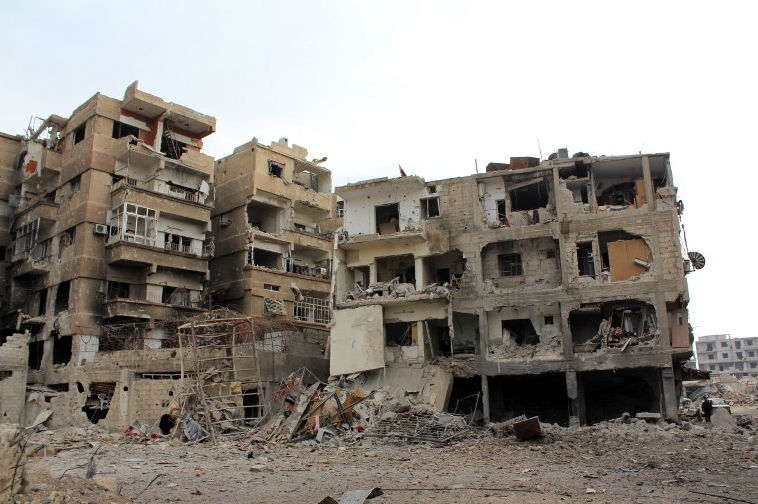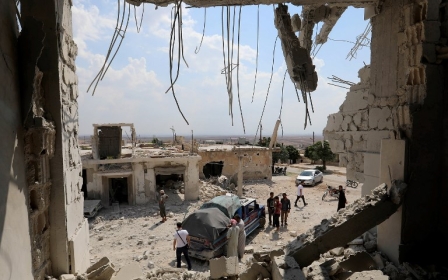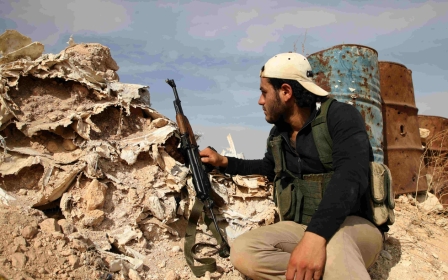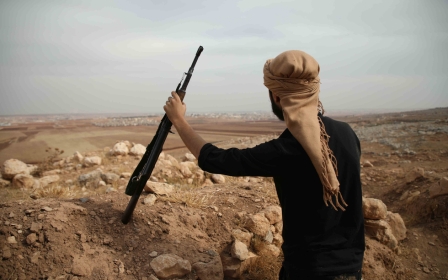Syria destroying homes in ex-rebel areas to block residents from returning: HRW

Syria's government is preventing people from returning to former rebel zones around Damascus through restrictions on access or by destroying their properties, a rights group said on Wednesday.
Human Rights Watch (HRW) said it found that Syrians trying to reach their hometown of Darayya outside Damascus, or the neighbourhood of Qabun inside the capital, were unable to do so.
Both areas have been tapped for redevelopment into residential and commercial complexes under Syria's Law 10, legislation passed earlier this year that allows the government to expropriate land.
"Apparently under the guise of a notorious property rights law, the Syrian government is actually blocking residents from returning," said HRW's deputy Middle East director Lama Fakih on Tuesday.
"In demolishing their homes and restricting access to their property, the Syrian government is signalling that despite official rhetoric inviting Syrians 'home,' they do not want refugees or displaced persons back," Fakih said.
Syrians from Darayya said the government was completely blocking access to the town, which was recaptured in August 2016 after years of siege and bombardment.
The Syrian government's takeover saw Darayya's residents bussed out in a mass population transfer that drew widespread criticism.
Those from Qabun, recaptured by the government in May 2017, reported being unable to access their neighbourhood or finding their property had been totally destroyed.
HRW also analysed satellite imagery showing Qabun had been subject to widespread demolitions after fighting ended.
These findings indicated Syria's government was "violating its obligations to guarantee freedom of movement," HRW said.
"The scale of the demolitions, and the fact that the government had retaken the area for at least a year, indicates that these demolitions are likely disproportionate, and may be war crimes," it said.
More than six million people remain internally displaced in Syria, and a similar number have fled to neighbouring countries since the conflict erupted in 2011, agencies report.
Lawyers, activists, and rights groups have expressed concern about protracted displacement, particularly after the passing of Law 10 earlier this year.
Once an area is declared a new development zone under the law, owners inevitably lose their property.
They can get shares in the new project by proving they owned land there within a given time frame, but critics fear refugees and displaced families either do not have the right documents or will not be able to get them on time.
New MEE newsletter: Jerusalem Dispatch
Sign up to get the latest insights and analysis on Israel-Palestine, alongside Turkey Unpacked and other MEE newsletters
Middle East Eye delivers independent and unrivalled coverage and analysis of the Middle East, North Africa and beyond. To learn more about republishing this content and the associated fees, please fill out this form. More about MEE can be found here.




